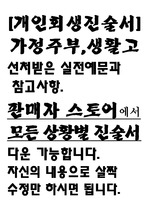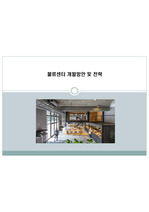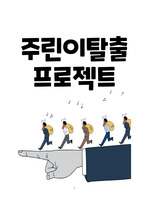어린이박물관에서의 미술감상을 위한 체험적 전시의 인기도 및 효과에 관한 연구
* 본 문서는 배포용으로 복사 및 편집이 불가합니다.
서지정보
ㆍ발행기관 : 한국박물관학회
ㆍ수록지정보 : 박물관학보
ㆍ저자명 : 이경희
ㆍ저자명 : 이경희
목차
Ⅰ. 서론Ⅱ. 연구방법
1. 연구대상
2. 미술감상 전시의 특성
3. 자료수집 방법
4. 연구절차
5. 자료분석 방법
Ⅲ. 연구결과 및 해석
Ⅳ. 논의 및 결론
참고문헌
한국어 초록
사회가 산업기반의 경제에서 지식기반의 경제로 바뀌면서 교육이 21세기의 주된 산업이 될 전망이나, 학교와 같은 형식적 교육기관들은 사람들의 교육에 대한 열망을 충족시키기 어려울 전망
이다 이에 평생학습을 위한 그리고 자유로운 선택에 의한 비형식적 학습기관이 더욱 주목을 받음
으로써 향후 지식기반의 사회에서 중요한 역할을 담당할 것으로 보인다(Packer & Ballantyne.
2002). 박물관은 비형식적 교육을 가장 잘 실천하는 기관으로서 사람들이 자기 지신과 사회를 위
해 정보를 습득하고 생각을 발전시키며 새로운 비션을 설정하는 장소로서 그 중요성이 증가할 것
으로예측된다.
이러한 맥락에서 아동을 주 대상으로 운영하고 있는 어린이박물관은 더욱 중요한 의미를 지닌
다. 성인이 되어서 박물관을 자주 방문하는 사람은 어렸을 때 박물관을 자주 방문했던 사람이라고
Hood와 Ohio (1996) 가 보고했듯이 , 어린이박물관은 아동들에게 전통적인 박물관 방문을 위한 가
교역할을충분히 할수있을것으로기대된다.
영어 초록
This study conducted in the Samsung Children' s Museum investigated as follows. First,whether or not the popularity of art exhibits differ according to the type of
exhibit(participatory versus non-participatory) and the characteristics of exhibit. Second
was to find out whether or not the perception of art exhibits differ according to the age of
children and the characteristics of participatory exhibit. Third was observed whether or not
the children interacted with the exhibits in compliance with the objectives that were
originally set out for each exhibit. And last was finding out that the time spent at each type
of participatory exhibit and the number of participatory exhibit chosen differ according to
the age of children.
Subjects were 160, 5- 12 year olds children, and they were divided into three age
groups(a preschool group of 5- 6 year olds, a lower elementary group of 7 - 9 year old, and
a higher elementary group of 10-12 year olds). A tirning and tracking observation checklist
was used to document the time spent at each participatory and non-participatory exhibit.
The results of the study are as follows.
First, the popularity of participatory exhibits differed from the non-participatory exhibits.
Overall, 10 Participatory exhibits excluding one had remarkably high popularity comparing
with 4 non-participatory exhibits which had low attractiveness and holding power. Also, the
popularity of participatory exhibits differed according to the characteristics of each exhibits.
55 percent of those had both high attractiveness and holding power, so they were the most
popular. Closely looking at the characteristics, we can find the activities like spinning a
handle for perceptual discrirnination, sliding four puzzle pieces, tuming pages, scratching, and putting pieces into the hole for feeding. These activities were the exhibits not only for
perceptual discrirnination, but also for needing other small muscle activities.
Second, the perception of art exhibits varied according to the characteristics of
participatory exhibits.o Two exhibits which showed 100 percent of perceiving frequency
needed the perception of exhibit for interacting with participatory exhibit more. Average
frequency of perceiving artworks was 73.8 percent, and was statically higher than
frequency of not perceiving. Furthermore, after observing the perception of artworks
according to childreno s age, the elementary kids perceived the relationship between the
participatory exhibit and the artwork more.
Third, 94.4 percent of children interacted with the participatory exhibits in compliance
with the objectives that were originally set out for each exhibit. Like the exhibition of this
study, if we related the artwork and the participatory exhibit more, the participatory exhibits
were used as the purpose of the exhibit more comparing with formal research.
Fourth, by researching the difference between the time spent and the number of
participatory exhibits chosen according to the age of children, there was no difference in the
number of participatory exhibits chosen, but in the time spent. Therefore, preschoolers
interacted with participatory exhibits the longest, then, a lower elementary group, and
finally, a higher elementary group.
참고 자료
없음"박물관학보"의 다른 논문
 『사립미술관의 현실과 과제』에 대한 토론문 -결론에 대한 추가 및 세부 제언-3페이지
『사립미술관의 현실과 과제』에 대한 토론문 -결론에 대한 추가 및 세부 제언-3페이지 『용산 새 국립박물관의 성과와 과제』에 대한 토론3페이지
『용산 새 국립박물관의 성과와 과제』에 대한 토론3페이지 수집 2세대의 박물관 전시21페이지
수집 2세대의 박물관 전시21페이지 한국의 박물관, 현실과 과제16페이지
한국의 박물관, 현실과 과제16페이지 사립(私立)박물관을 생각한다9페이지
사립(私立)박물관을 생각한다9페이지 용산시대 국립중앙박물관 기획특별전과 전시콘텐츠 마케팅20페이지
용산시대 국립중앙박물관 기획특별전과 전시콘텐츠 마케팅20페이지 강원 영동지역 역사민속계 박물관의 유물관리 개선 방안 연구14페이지
강원 영동지역 역사민속계 박물관의 유물관리 개선 방안 연구14페이지 국립중앙박물관문화재단의 역할과 ‘극장 용’의 마케팅26페이지
국립중앙박물관문화재단의 역할과 ‘극장 용’의 마케팅26페이지 스토리텔링을 적용한 박물관 전시 구조에 관한 연구19페이지
스토리텔링을 적용한 박물관 전시 구조에 관한 연구19페이지 문화재교육의 프로그래밍 방법론에 관한 연구26페이지
문화재교육의 프로그래밍 방법론에 관한 연구26페이지

























